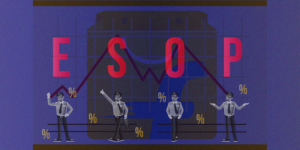2021 has been a landmark year for India’s startup ecosystem.
Riding on a record $26 billion VC funding between January to August, the country averaged three new unicorns per month, according to Hurun Research Institute.
There were, of course, outliers like the ‘Unicorn Week’ in mid-April, when six unicorns were birthed in a span of seven days.
But we’re not done yet.
The Hurun Research Institute has released its inaugural ‘Hurun India Future Unicorn List 2021’ to rank startups that are knocking at the doors of a billion-dollar valuation. These are companies valued at over $200 million, not yet listed on a public exchange, and “most likely to go unicorn’ in two years (Gazelles) or four years (Cheetahs).
The top 15 startups in the list are Zilingo, MPL, Rebel Foods, Curefit, Spinny, RateGain, Mamaearth, CarDekho, GreyOrange, MobiKwik, Navi Technologies, Licious, Uniphore, Ecom Express, and Vedantu.
These startups are ranked according to their latest funding round valuation until August 31, 2021, Hurun India said in a statement. “India’s unicorns are now worth $168 billion, more than the GDP of Telangana at current prices,” the report stated.
List of startups that can become unicorns in the next two years, as per Hurun India
Anas Rahman Junaid, MD and Chief Researcher, Hurun India, said,
“India is the third largest unicorn ecosystem in the world and the number of Gazelles and Cheetahs is growing at an exponential pace. Preparing the Future Unicorn List 2021 has been one of the most daunting tasks, primarily due to the positive hyperactivity in Indian startup ecosystems. Five startups that we had as Cheetahs at the beginning of our research, jumped straight to unicorn valuations.”
India has 51 unicorns at the end of August 2021, trailing only the US (396) and China (277). The country went past the UK (32) after adding 26 unicorns in this year alone.
Sequoia is the top investor in these startups, with 37 investments and counting. It is followed by Tiger Global (18), InnoVen Capital (17), Accel (13), and Trifecta (12).
“The list also evidences the ballooning investor interest for Indian startups. More than 300 investors that include angel investors, corporates, AIFs, family offices and institutional investors have invested into the Cheetahs and Gazelles,” Anas stated.
Top sectors and cities
With a 49 percent share, ecommerce, fintech, and SaaS dominate the list of future unicorns. Despite the increased buzz around cryptocurrency this year, Coinswitch Kuber is the only crypto startup to feature on the list.
In the city-wise spread, Bengaluru continues its march as India’s startup capital. As many as 31 future unicorns are based in the city, while Delhi-NCR (18) and Mumbai (13) follow in the second and third positions.
However, due to increasing regulatory hurdles in India, many growth-stage startups are now setting up bases in the US.
Anas explained,
“Some startups that reach a certain scale migrate from India, in search for better regulatory incentives and risk capital availability. For instance, some of the best enterprise SaaS companies are born in India but ‘flipped’ to the US. This is a lost opportunity for India, and it is important that these startups are incentivised to stay back.”
Hurun India further revealed that founders across age groups have been able to build successful businesses in the internet economy over the last decade.
Eleven co-founders on the list are under the age of 30, while 15 are aged above 50. The average founder age, meanwhile, stood at 39 years. At 25, Zupee founders Dilsher Singh and Siddhant Saurabh were the youngest on the list.
Additionally, 12 startups on the list are co-founded by women entrepreneurs. These include Zilingo, Mamaearth, Mobikwik, Ecom Express, Acko General Insurance, WinZo, MyGlamm, Square Yards, Bankbazaar, Pratilipi, SirionLabs, and Zivame.










